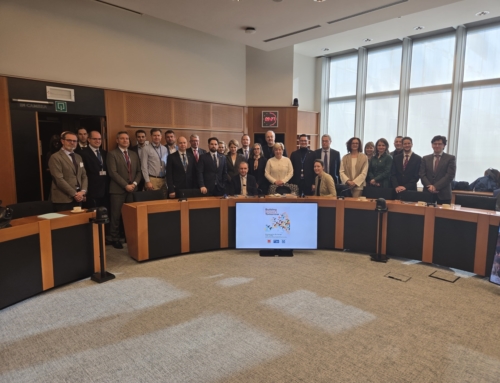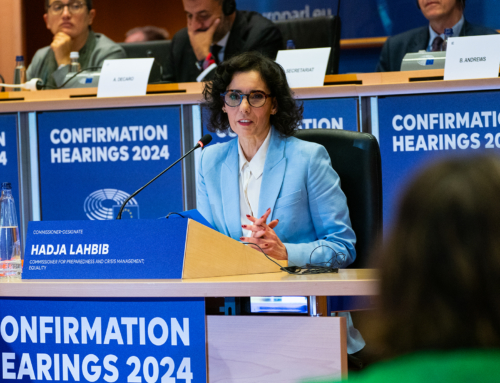The pandemic created disastrous consequences for the global and European economy. Many families and businesses experience financial difficulties, and fail to reimburse their loans, thus creating issues of non-performing loans.
The non-performing loans are bank loans that are[1]
- subject to late repayment (90 days past due)
- unlikely to be repaid by the client, for example if the client faces financial difficulties.
The current rise of non-performing loans negatively impacts the lending of banks to households and businesses and may thus affect the EU economic recovery.[1] In that sense, the EU has a clear interest in safeguarding the stability of the banking system by providing recommendations to the Member States on the management of risk related to the NPLs.
During the 2008 economic and financial crisis, the rise of NPLs reduced bank lending, increased financial instability and slowed the global economic growth. As a response, the EU adopted a regulation on “Prudential requirements for credit institutions and investment firms” (2013), which tackles the need to strenghten the prudential requirements of banks. It requires them to have adequate capital reserves and liquidity in order to become more resilient in periods of economic instabilities.
The Council of the European Union published in July 2017 the Action Plan to tackle NPLs in Europe and the European Commission announced in October of the same year a comprehensive package of measures to reduce the level of NPLs in a Communication on Completing the Banking Union. In addition, the Commission published a delegated regulation on “regulatory technical standards for the materiality threshold for credit obligations past due“, focused on ways for institutions to identify obligors that pose significantly higher risks [2].
Decreasing the level of NPLs remains one of the EUs priorities in reducing further risks in banking sector. Latest data from the first half of 2020 showed that the NPL ratio, covering all EU banks, started to rise. As a response, the Commission presented in December 2020 an “Action Plan Tackling non-performing loans (NPLs) in the aftermath of the COVID-19 pandemic”, whose goal is to give Member states and financial sector tools to address the possible rise of NPLs. Last year, the European Central Bank published a paper stressing that the situation of post-COVID-19 NPLs may become more challenging than in 2008, due to higher levels of government debt and less profitable banks.[3]
Members of the European Parliament proposed to the Commission in several written questions to temporary relax the repayment period of 90 days to reimburse the loan. Although the Commission welcomed banks initiatives to support citizens and businesses by for example postponing their payments, the definition of 90 days criterion will remain for banks to continue to measure risks.[4]
Alongside existing efforts to address the harmful consequences of the possible rise of NPLs, a solution is to first prevent and guarantee that families and family businesses are capable of paying their loans. Stable families positively contribute to a stable banking system. The best way to prevent the payment default of families is thus to protect them from risks of poverty, through tailor-made family policies and innovative approached to the payment of loans. Supported and empowered families can be reliable borrowers, but also key contributors to the economic and finance progress. This aspect must be kept in mind when addressing the EU post-pandemic recovery. Families cannot be left aside because they are among the key economic actors for a sustainable future of Europe.
Read more on FAFCE effort to support families in their role as active actors in the EU post-pandemic recovery
- FAFCE Informal Board Meeting: Our Members present their work in times of pandemic
- Family and teleworking: FAFCE stresses the commitment and struggles of parents
- Where is the family in the EU recovery plan?
- FAFCE Board Resolution | Family is the heart of the post-pandemic recovery
- Press Release | Families need a more effective support
[1] European Commission “Questions and Answers: Tackling non-performing loans to enable banks to support EU households and businesses “ Available at https://ec.europa.eu/commission/presscorner/detail/en/qanda_20_2376
[2] Official Journal of the European Union “COMMISSION DELEGATED REGULATION (EU) 2018/171 of 19 October 2017 on supplementing Regulation (EU) No 575/2013 of the European Parliament and of the Council with regard to regulatory technical standards for the materiality threshold for credit obligations past due” Available at L_2018032EN.01000101.xml (europa.eu) §8 and §5
[3] European Parliament Think Tank “The EU’s regulatory and supervisory response to addressing non-performing loan” Available at https://www.europarl.europa.eu/thinktank/en/document.html?reference=IPOL_IDA(2021)659634 p.1
[4] Priority question for written answer “Changes to the new EU rules on non-performing loans following the impact of the COVID-19 pandemic on the economy” Available at Changes to the new EU rules on non-performing loans following the impact of the COVID-19 pandemic on the economy (europa.eu)
Question for written answer “Draft EBA Guidelines on loan origination and monitoring” Available at https://www.europarl.europa.eu/doceo/document/E-9-2020-001268_EN.html.







